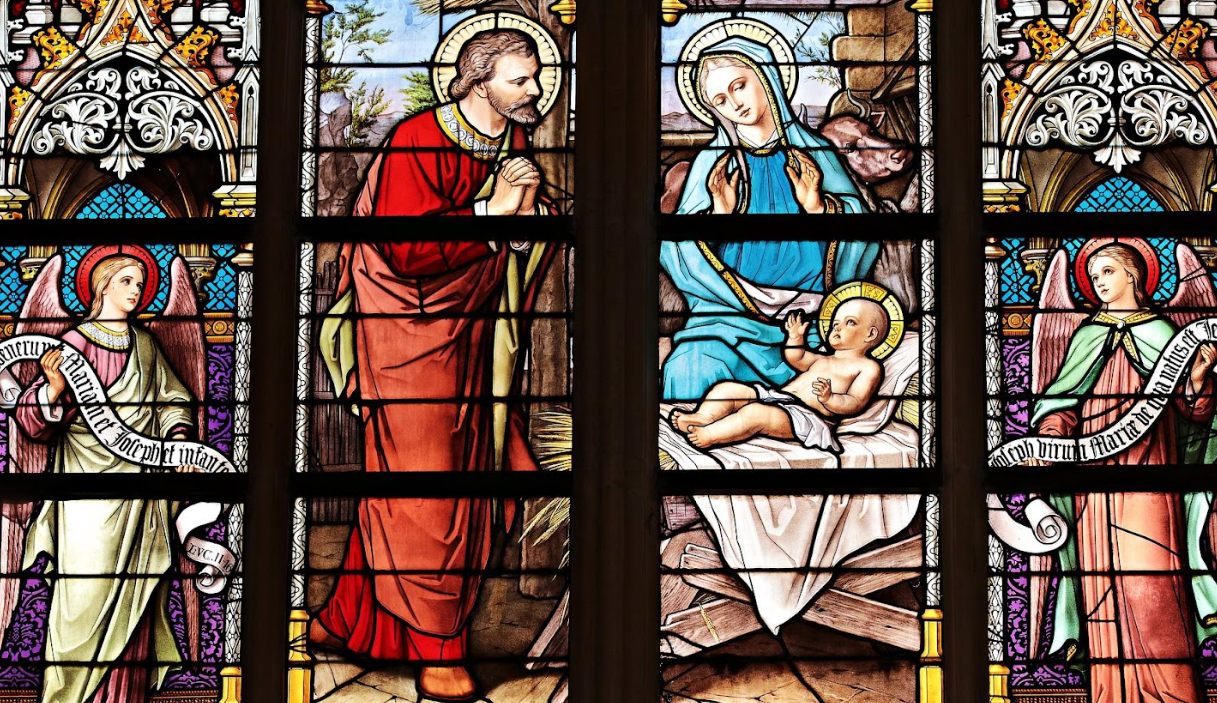
42 Courses
MIN 105 Spiritual Formation MC 2024
This course introduces students to the concepts of holistic Christian spiritual formation and historic spiritual practices for spiritual growth. Personal spiritual assessment and opportunity for developing a practical plan for personal spiritual formation are also emphasized.

Foundations of Social Justice MC
This course is a study of social justice from a biblical, Christian perspective. It will survey the spectrum of justice issues, and examine the corporate and individual Christian responsibility to address such issues. As well students will be exposed to the different groups and organizations fighting injustice and making a positive and Godly difference in the world.

SC 205 Scientific Thought MC
Scientific Thought is a survey of the history of science and its interaction with society. Discussions will encompass: a synopsis of how scientific thought has shaped cultural norms, politics, and religious thought in western civilization; how partisan political ambition and media permeation has directed scientific thought; and the ebb and flow of the relationship between religion and science.

MA 200 Financial Math MC
Financial Math is an introductory course in which the student will realize the complex relationship between faith and money and increase their financial literacy with the goal of managing financial resources responsibly. Topics will include money management, rudimentary budgeting, basic accounting, financial goal attainment, the wise use of credit, insurance, investments, debt management, and taxation.

TH 203 Basic Christian Beliefs MC
Basic Christian Beliefs (TH 203) lays the foundation of a firm belief in the Christian religion. It introduces the student to the basic doctrines of the Bible and furnishes evidence which supports the divine origin of the doctrines, morals, and institutions of Christianity.

PM 400 Pastoral Ministry MC
Pastoral Ministry (PM 400) studies the real-life work and responsibilities of the pastor (except preaching). Students are exposed to both the ‘upfront/public’ ministries of a pastor, as well as the ‘behind-the-scenes’ responsibilities. Many practical areas of pastoral ministry are explored through lecture, demonstration, practice, and visits to local churches.

MIN 300 Principles and Practices of Discipleship MC
Principles and Practices of Discipleship (MIN 300) studies the biblical mandate, history, current realities, breadth, and challenges of Christian discipleship. Emphasis is placed on studying the ‘best practices’ of those churches which take seriously their responsibility to facilitate Christian discipleship.
Undergrad/Grad
GE120 Online Orientation MC
Studying online is a challenge for even the most disciplined student with the most robust set of academic skills. Online Orientation helps students prepare for success as an online student.

Undergrad/Grad
MIN 209 Personal Evangelism MC
Personal Evangelism (MIN 209) is designed to assist students in using the Bible, other tools, and practical methods in leading people to Christ. The effective use of follow-up methods is also explored.

MIN 200 Introduction to Worship MC
Introduction to Worship (MIN 200) serves the primary purpose of assisting students in the development of a theological understanding of worship, and of corporate worship in particular. To aid this discovery, the course will offer an opportunity to consider biblical precedents and historical practices for maximum Kingdom impact in the 21st century church. This course is considered foundational, not only for worship leaders, but for any pastor or church leader who will plan and guide the worship ministry in the local church and other venues.

TH 411 Doctrine of Holiness MC
This course offers an intensive study of Christian perfection from a Wesleyan perspective in its biblical, doctrinal, historical, and practical aspects.

MIN 105 Spiritual Formation MC
Spiritual Formation (MIN 105) introduces students to the concepts of holistic Christian spiritual formation and historic spiritual practices for spiritual growth. Personal spiritual assessment and opportunity for developing a practical plan for personal spiritual formation are also emphasized.

HI 403 Wesleyan History & Discipline MC
Wesleyan History and Discipline (HI 403) provides an overview of the history of the Wesleyan movement, with a focus on the development of today’s Wesleyan Church, and how the past affects the church’s ministry today. The course also seeks to assist in the understanding and application of The Discipline.

NT 101 Biblical Literature II MC
Biblical Literature II (NT 101) is a comprehensive survey of the New Testament. Problems relating to its proper understanding are considered.

NT 205 Gospels MC
Gospels (NT 205) centers on the life of Christ as seen through a careful study of the Gospels of Matthew, Mark, Luke, and John. Particular attention is given to the unique historical and theological contributions of each of the Gospels. Key themes are surveyed.

PSPM 301 Introduction to Counselling MC
Introduction to Counselling (PSPM 301) gives an overview of counselling theory, and reviews and practices skills of being a good helper and counsellor. The integration of theology and psychology is considered and foundational understanding of people and what is needed to promote healing is studied and practiced.

TH 306 Christian Doctrine II MC
Christian Doctrine II (TH 306) is a continuation of Christian Doctrine I, focusing on a systematic treatment of the doctrines regarding the person and work of Jesus Christ, the atonement, the nature and function of the Holy Spirit in the life of the believer, sanctification and the Christian life, the nature of the church, and eschatology.

PM 302 Expository Preaching MC
Expository Preaching (PM 302) builds on the skills developed in Homiletics by offering additional training in the art of preparing and preaching an expository sermon in the context of a post-Christian society.
TH 305 Christian Doctrine I MC
Christian Doctrine I provides a systematic treatment of the nature and sources of theology. Considered are the problems of knowledge and authority, the proper approach to the Bible as God’s written revelation, and the doctrines of God, creation, providence, anthropology, and sin.

OT 201 Pentateuch MC
Pentateuch is a detailed study of the content and spiritual significance of the first five books of the Bible (Genesis through Deuteronomy).